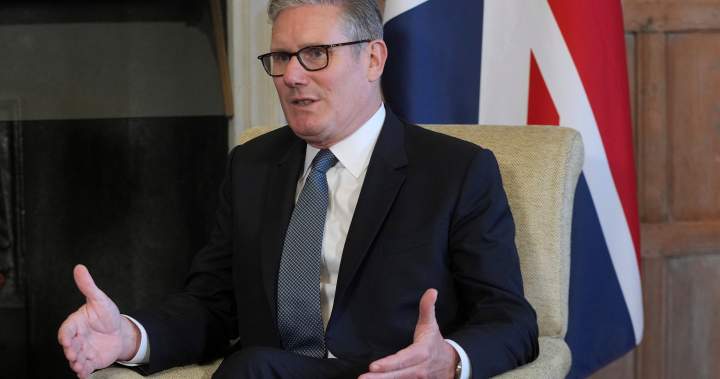The British government has publicly signaled its willingness to recognize Palestinian statehood even without Israeli consent – a dramatic shift in UK foreign policy that could fundamentally alter Western diplomatic approaches to the Middle East conflict. During parliamentary proceedings this week, Foreign Secretary David Lammy indicated the UK might soon formalize recognition as part of broader international efforts to revitalize the peace process and two-state solution.
“Recognition is not a gift to be bestowed, but a right of the Palestinian people,” Lammy told a packed House of Commons. The statement represents a marked departure from decades of British policy that tied recognition to successful negotiations between Israelis and Palestinians. This shift comes amid growing frustration with Israeli Prime Minister Benjamin Netanyahu’s government and its handling of the Gaza conflict.
Walking through East Jerusalem last month, I witnessed the daily indignities that define Palestinian existence under occupation. A shopkeeper named Mahmoud told me, “We don’t need more words from Western politicians. Either they recognize our right to exist as equals or they don’t.” His skepticism reflects a broader sentiment among Palestinians who have weathered countless peace initiatives with diminishing returns.
The UK joins a growing coalition of European nations reconsidering their stance on Palestinian statehood. Spain, Ireland, and Norway have signaled similar intentions, with Spain’s Prime Minister Pedro Sánchez explicitly linking recognition to humanitarian concerns. “We cannot remain passive while Gaza burns,” he declared at a Madrid press conference I attended in April.
For decades, Britain maintained that Palestinian statehood should emerge naturally from successful peace negotiations. This position, defended by successive Conservative and Labour governments, aligned with American and Israeli preferences. Now, that consensus appears to be crumbling under the weight of the current crisis, which has claimed over 35,000 Palestinian lives according to Gaza’s health ministry.
Netanyahu’s office responded swiftly, condemning what it called “unilateral recognition that rewards terrorism.” During a closed-door briefing with diplomatic correspondents in Jerusalem, a senior Israeli official warned that such moves would “embolden Hamas and undermine Israel’s security.” The official spoke on condition of anonymity because they weren’t authorized to comment publicly.
The practical implications of British recognition remain unclear. Palestinian Authority officials I spoke with in Ramallah last week expressed cautious optimism but emphasized that symbolic recognition without tangible sovereignty brings limited benefits. “Recognition without ending occupation is like having a passport but no country to return to,” said Hanan Ashrawi, veteran Palestinian diplomat.
Washington maintains its traditional stance that Palestinian statehood should result from direct negotiations, not unilateral recognition. However, sources within the State Department indicate growing frustration with Netanyahu’s government and its resistance to meaningful peace talks. A senior American diplomat, speaking off the record, acknowledged “significant daylight” emerging between U.S. and Israeli positions.
The historical significance of potential British recognition cannot be overstated. As the former mandatory power in Palestine and author of the 1917 Balfour Declaration, Britain bears unique historical responsibility for the region’s contested borders. “British recognition would represent a full circle moment in the century-long struggle for Palestinian self-determination,” notes Dr. Yara Hawari at the Palestinian Policy Network.
Economic considerations also factor into the diplomatic calculus. The European Union remains the Palestinian Authority’s largest donor, providing approximately €600 million annually. However, without political progress, this economic support increasingly resembles life support for institutions with limited autonomy rather than genuine state-building.
The grassroots momentum for recognition has accelerated dramatically since October 7th. Mass demonstrations across European capitals have pressured governments to reconsider their positions. In London alone, hundreds of thousands have marched in support of Palestinian rights, creating domestic political pressure that previous governments could more easily ignore.
Recognition would grant Palestinians enhanced status in international organizations and potentially greater access to international courts and financial institutions. However, it would not immediately alter the reality of Israeli military occupation, settlement expansion, or Gaza’s devastation.
Opposition to recognition comes from varied quarters. Pro-Israel advocacy groups warn it rewards Hamas’s October attacks and undermines Israel’s security concerns. Conservative British parliamentarians argue unilateral recognition removes Palestinian incentives to negotiate in good faith. Jewish community leaders have expressed concerns about rising antisemitism potentially being fueled by one-sided diplomatic moves.
The timing of any recognition announcement remains deliberately ambiguous. Lammy stated that recognition would come “when the moment is right” and could serve as leverage to pressure Israel toward accepting a ceasefire plan currently under negotiation. This strategy reflects the growing consensus that traditional diplomatic approaches have failed to deliver meaningful progress.
What remains certain is that Palestinian statehood has reemerged as a central focus of international diplomacy after years of neglect. Whether recognition without Israeli consent can advance peace or further entrench conflict remains the essential question facing policymakers from London to Brussels and beyond.






